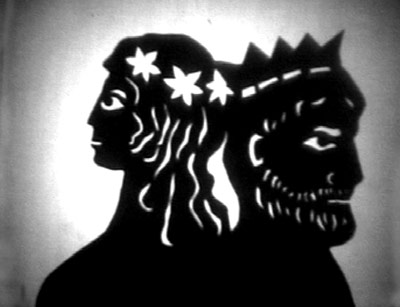Local playwright Elizabeth Schell contacted planetary astronomy professor Michael E. Brown — the scientist who discovered dwarf planet Eris in 2005 — to tell him she'd penned Pluto v. Eris: The Trial of Discord (in Schell's words, "a theatrical response to the conflict over the change in Pluto's planetary status and in celebration of the human drive to discover"). The response from California-based Brown: "That sounds fabulous; I'd love to read it! I'll keep my fingers crossed for the touring version stopping in Pasadena." Which is sweet, only a touring version isn't likely anytime soon.

Schell's play was crafted to benefit the NASA program at Vance Elementary in West Asheville and, while not intended as a children's play, will debut in that school's auditorium.
But just because Pluto v. Eris is getting a small (not humble: Schell describes the Vance auditorium as "a very dynamic space"; it's called the "planetorium" for its space theme) start doesn't mean it's not a play with big aspirations. Inspired by Pluto's demotion from planet to dwarf planet in 2006 — and by the public's anxious response to that change — Schell began work on a production that addresses not only the planetary status but also myths of gods and goddesses.
According to the playwright's summary, "Haumea and Makemake, a Polynesian god and goddess (and also two of the newly discovered dwarf planets), introduce the play and comment on the gods and goddesses … as they gather for the Council of Celestial Beings. The Council assembles to hear charges against Eris, goddess of Discord, who is accused of treason and general mayhem by Pluto, god of the Underworld."
Eris, the namesake of Brown's discovery, is "the goddess who brought the apple that was blamed for all the Trojan War trouble," Schell says. "I started the play around the idea of gods as characters their god identities versus their planet identities." Indeed, the bodies of our solar system borrow their monikers from Greek and Roman deities which led Schell to do a good deal of brushing up on mythology.
When it came time to reinterpret those myths in a language that made sense with the modern confusion and disappointment surrounding Pluto's reclassification, Schell decided to use shadow puppets. "I worked with fourth graders in the gifted program," she says. "They story boarded the myths and figured out how to act them out." The puppetry was then videoed and will be projected on stage as part of the live performance.
There are also two life-size puppets — Bread and Puppet Theater-style papier-mâché heads representing Uranus and Saturn — among the cast of 17 actors (six have performed with Montford Park Players, three are teens) because, says Schell, "The whole puppet layer [relates to] how we create these myths to explain things. Puppetry is control, which made sense with the theme of the play."
But more important than explaining the workings of the universe or investigating the planetary status of Pluto is funding Vance Elementary's NASA program. Vance principal Cynthia Sellinger wrote via e-mail that the school became a NASA Explorer School in 2005: "Once a NASA Explorer School, always a NASA Explorer School." She explains that Vance receives visits from NASA educators who work with each class and provide in-house staff development for teachers on a twice-yearly basis, and "we are also privy to free staff development throughout the country if chosen to participate. Several of our family nights are dedicated to NASA challenges."
NASA says the program (which is currently no longer accepting new schools) is "designed to bring engaging mathematics, science and technology learning to educators, students and families."
"The NASA program really tries to engage the kids in the process of inquiry," says Schell, who hopes funds raised by her play will go toward a spring trip for Vance fifth-graders to visit the NASA Langley Research Center in Hampton, Va. But for those who can't get away to explore the final frontier, Schell's Pluto v. Eris goes a long way to bringing space — and the spirit of inquiry — home to Asheville.
who: Pluto v. Eris: The Trial of Discord
what: Play about the change in Pluto's planetary status; fundraiser for for NASA program at Vance Elementary, geared toward an adult audience.
where: Vance Elementary planetorium, 98 Sulphur Springs Rd., West Asheville
when: Friday & Saturday, March 26 & 27 (8 p.m., $8. www.pluto-v-eris.org)



The IAU demotion of Pluto was definitely a change in the wrong direction. Only four percent of the IAU voted on the controversial demotion, and most are not planetary scientists. Their decision was immediately opposed in a formal petition by hundreds of professional astronomers led by New Horizons Principal Investigator Dr. Alan Stern. One reason the IAU definition makes no sense is it says dwarf planets are not planets at all! That is like saying a grizzly bear is not a bear, and it is inconsistent with the use of the term “dwarf” in astronomy, where dwarf stars are still stars, and dwarf galaxies are still galaxies. Also, the IAU definition classifies objects solely by where they are while ignoring what they are. If Earth were in Pluto’s orbit, according to the IAU definition, it would not be a planet either. A definition that takes the same object and makes it a planet in one location and not a planet in another is essentially useless. Pluto is a planet because it is spherical, meaning it is large enough to be pulled into a round shape by its own gravity–a state known as hydrostatic equilibrium and characteristic of planets, not of shapeless asteroids held together by chemical bonds. These reasons are why many astronomers, lay people, and educators are either ignoring the demotion entirely or working to get it overturned.